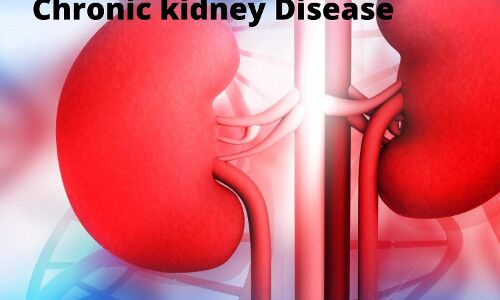
A new study found that discontinuation of Renin-angiotensin inhibitors in progressive and advanced end-stage kidney disease patients is not linked to a significant difference in the long-term rate of decrease in the estimated glomerular filtration rate (eGFR). The study was published in The New England Journal of Medicine.
The progression of mild or moderate chronic kidney disease is decelerated by renin-angiotensin system (RAS) inhibitors, including angiotensin-converting enzyme (ACE) inhibitors and angiotensin-receptor blockers (ARBs). But there is ambiguity in the literature which says that the discontinuation of RAS inhibitors in patients with advanced chronic kidney disease may increase the estimated glomerular filtration rate (eGFR) or slow its decline. Hence researchers conducted a multicenter, open-label trial to understand RAS inhibitors and their effect on advanced and progressive chronic kidney disease.
Patients with advanced and progressive chronic kidney disease having eGFR, <30 ml per minute per 1.73 m2 of the body surface area were randomly assigned to discontinue or to continue therapy with RAS inhibitors. 411 patients were enrolled in the study. The primary outcome was the eGFR at 3 years but the eGFR values that were obtained after the initiation of renal-replacement therapy were excluded. Secondary outcomes were to identify the development of end-stage kidney disease (ESKD), a decrease of more than 50% in the eGFR, or the initiation of renal-replacement therapy, including ESKD; hospitalization; blood pressure; exercise capacity; and quality of life. Based on the factors like age, eGFR, type of diabetes, mean arterial pressure, and proteinuria prespecified subgroups were formed.
Results:
- A negative value favoring the outcome in the continuation group was observed at 3 years as the least-squares mean (±SE) eGFR was 12.6±0.7 ml per minute per 1.73 m2 in the discontinuation group and 13.3±0.6 ml per minute per 1.73 m2 in the continuation group.
- As per the prespecified subgroups, heterogeneity in outcome was not observed.
- 128 patients (62%) in the discontinuation group and 115 patients (56%) in the continuation group had ESKD or the initiation of renal-replacement therapy occurred.
- Adverse events were similar in both groups concerning cardiovascular events and deaths.
Thus, discontinuing RAS inhibitors did not show any group difference in the long-term rate of decrease in the eGFR.
Further reading: Bhandari S, Mehta S, Khwaja A, et al. Renin-Angiotensin System Inhibition in Advanced Chronic Kidney Disease [published online ahead of print, 2022 Nov 3]. N Engl J Med. 2022;10.1056/NEJMoa2210639. doi:10.1056/NEJMoa2210639


